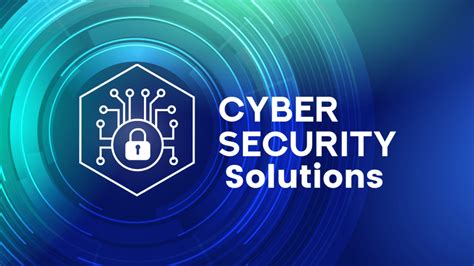As technology advances, cybersecurity threats are becoming increasingly sophisticated, making it essential for businesses and individuals to invest in robust security measures to protect their sensitive data. With the rise of remote work, cloud computing, and the Internet of Things (IoT), the attack surface has expanded, and cybersecurity is no longer just a concern for large corporations. In this article, we will explore five essential security tech solutions that can help mitigate the risks and protect your digital assets.
The importance of cybersecurity cannot be overstated. According to a report by Cybersecurity Ventures, the global cost of cybercrime is expected to reach $6 trillion by 2025. Moreover, the report states that every 11 seconds, a business falls victim to a ransomware attack, resulting in significant financial losses and damage to reputation. Therefore, it is crucial to implement robust security measures to protect your business from these threats.
1. Firewall Security

Firewalls are a fundamental security tech solution that acts as a barrier between your internal network and the external world. They monitor incoming and outgoing network traffic, blocking malicious data packets and preventing unauthorized access to your system. Firewalls can be hardware-based, software-based, or a combination of both.
In addition to blocking unauthorized access, firewalls can also be configured to block specific types of traffic, such as peer-to-peer file sharing or instant messaging. Moreover, firewalls can be used to segment your network, creating separate zones for different departments or functions, further reducing the attack surface.
Types of Firewalls
There are several types of firewalls, including:
- Network firewalls: These are hardware-based firewalls that are installed at the network perimeter.
- Host-based firewalls: These are software-based firewalls that are installed on individual hosts or devices.
- Application firewalls: These are firewalls that are specifically designed to protect applications and services.
2. Encryption

Encryption is the process of converting plaintext data into unreadable ciphertext, making it unintelligible to unauthorized parties. Encryption is an essential security tech solution that protects your data from interception and eavesdropping.
There are two main types of encryption:
- Symmetric encryption: This uses the same key for both encryption and decryption.
- Asymmetric encryption: This uses a pair of keys, one for encryption and another for decryption.
Encryption can be used to protect data in transit, such as when sending emails or transmitting data over the internet. It can also be used to protect data at rest, such as when storing sensitive data on a hard drive or in a database.
Encryption Algorithms
Some common encryption algorithms include:
- AES (Advanced Encryption Standard)
- RSA (Rivest-Shamir-Adleman)
- SHA (Secure Hash Algorithm)
3. Antivirus Software

Antivirus software is a security tech solution that detects, prevents, and removes malware from your system. Malware can take many forms, including viruses, Trojan horses, spyware, and ransomware.
Antivirus software uses various techniques to detect malware, including:
- Signature-based detection: This involves comparing files and programs against a database of known malware signatures.
- Behavioral-based detection: This involves monitoring system behavior and flagging suspicious activity.
Antivirus Software Features
Some common features of antivirus software include:
- Real-time scanning
- Scheduled scanning
- Automatic updates
- Firewall integration
4. VPN (Virtual Private Network)

A VPN is a security tech solution that creates a secure, encrypted tunnel between your device and a VPN server. This allows you to browse the internet securely and privately, even when using public Wi-Fi networks.
VPNs use encryption to protect your data from interception and eavesdropping. They also mask your IP address, making it difficult for hackers to track your online activity.
VPN Benefits
Some benefits of using a VPN include:
- Enhanced security
- Improved privacy
- Access to geo-restricted content
- Protection from ISP throttling
5. Identity and Access Management (IAM)

IAM is a security tech solution that manages user identities and access to sensitive resources. IAM systems ensure that only authorized users have access to sensitive data and systems.
IAM systems use various techniques to authenticate and authorize users, including:
- Password-based authentication
- Multi-factor authentication
- Role-based access control
IAM Benefits
Some benefits of using IAM include:
- Improved security
- Enhanced compliance
- Reduced risk of data breaches
- Simplified user management
Gallery of Essential Security Tech Solutions:





Frequently Asked Questions:
What is the importance of cybersecurity?
+Cybersecurity is essential for protecting sensitive data and preventing financial losses due to cybercrime.
What are the benefits of using a VPN?
+Using a VPN enhances security, improves privacy, and provides access to geo-restricted content.
What is identity and access management (IAM)?
+IAM is a security solution that manages user identities and access to sensitive resources.
In conclusion, these five essential security tech solutions are crucial for protecting your digital assets from cyber threats. By implementing firewall security, encryption, antivirus software, VPNs, and IAM, you can significantly reduce the risk of data breaches and cyber attacks. Remember to always stay informed and up-to-date with the latest security threats and solutions to ensure the security of your digital assets.
We hope this article has provided you with valuable insights into the world of cybersecurity. If you have any questions or comments, please feel free to share them with us.
